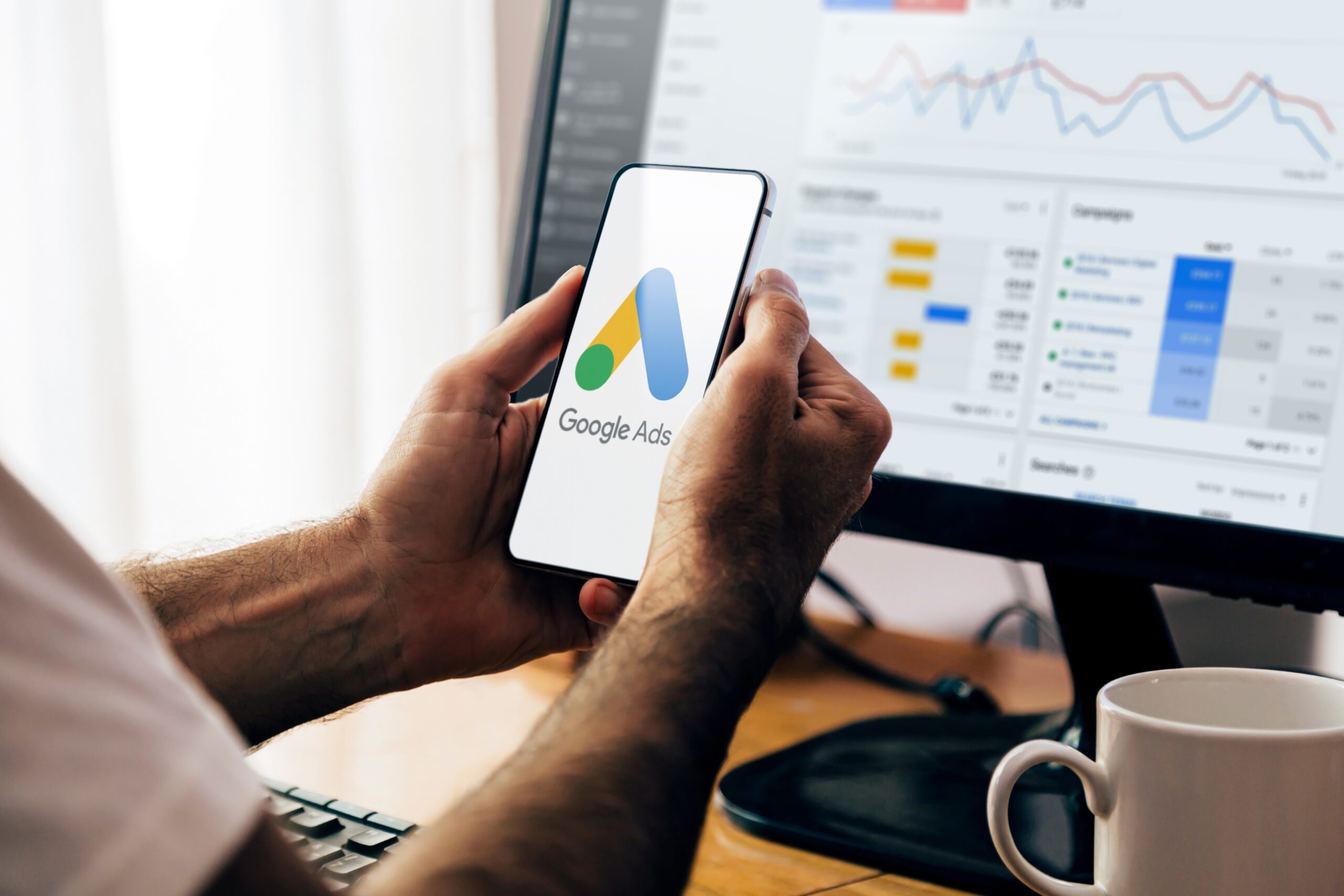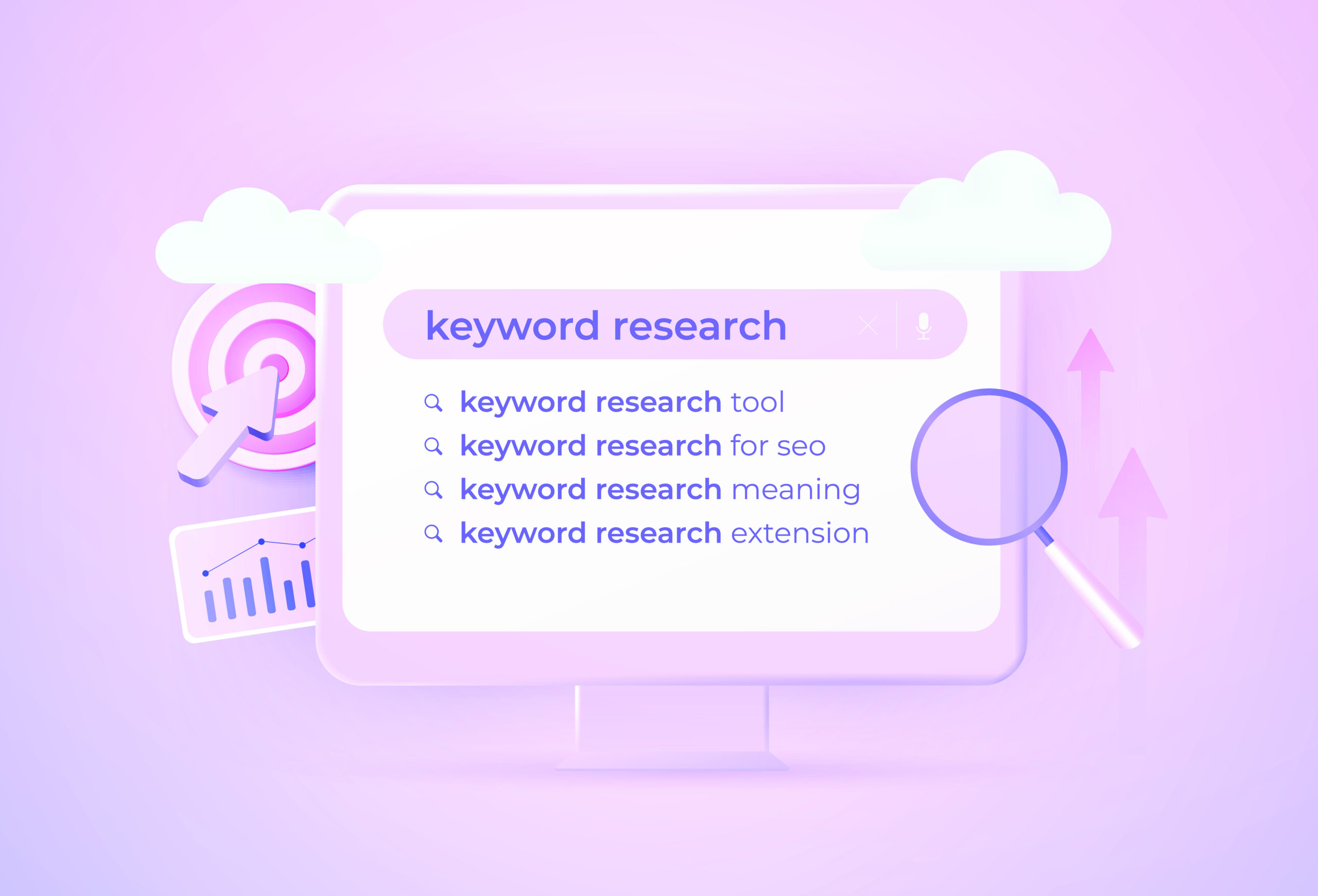
Maximizing ROI with Google Ads: Strategies for Success
Every click could lead to a potential customer. Google Ads helps businesses navigate the bustling online marketplace. The platform’s PPC advertising allure lies in its promise of immediate visibility and direct engagement with targeted audiences.
Yet, the path to digital prominence is filled with challenges. Navigating the complex waters of Google Ads without a carefully crafted strategy may dilute your efforts’ impact and erode your marketing budget, leading to a disappointing ROI.
To truly leverage Google Ads’ formidable capabilities, businesses must embrace a systematic approach, meticulously aligning their campaigns with strategic insights. This entails a deep dive into understanding the complex details of keyword relevance, the art of crafting compelling ad copy, and the science behind bid optimization—all aimed at amplifying your brand’s presence while maximizing every dollar spent.
Embracing this disciplined strategy ensures that your investment in Google Ads transcends mere visibility and transforms it into a powerful platform for achieving your most ambitious business objectives.

Setting the Foundation: Understanding Your Audience and Objectives
Setting a solid foundation for your Google Ads campaign involves two critical components: a thorough understanding of your target audience and a clear set of business objectives. This preparatory step is indispensable, as it shapes the direction and effectiveness of your entire PPC strategy.
Understanding Your Audience
To tailor your Google Ads campaign for maximum impact, start by delving deep into who your target audience is. This encompasses more than demographic details like age, gender, or location. It involves deeply understanding their behaviors, challenges, needs, and online search patterns. What motivates them to seek out your products or services? What specific problems are they hoping to solve? Getting to the heart of your audience’s intent and preferences allows you to craft messages that resonate personally and drive action.
Defining Your Business Objectives
Clear business objectives are your campaign’s guiding star. They define your goals through your Google Ads efforts and how you’ll measure success. Objectives can vary widely depending on your business model and growth stage—from increasing direct online sales and generating leads to enhancing brand awareness or driving foot traffic to physical locations. Each goal requires a tailored approach to campaign structure, keyword selection, and ad creativity.
Leveraging PPC Management Insights
Partnering with a PPC management agency or utilizing sophisticated PPC tools can provide valuable insights into both your audience and how to align your campaign with your business objectives. These professionals and tools can offer detailed analysis of search trends, competitor strategies, and audience behavior, enabling you to optimize your campaign for higher relevance and engagement. They can also assist in setting realistic, measurable objectives and tracking progress towards these goals, ensuring that your Google Ads campaigns are not just a cost but an investment in your business’s growth.
By meticulously setting the foundation with a deep understanding of your audience and clear, actionable objectives, you’re not just launching a Google Ads campaign but embarking on a strategic journey toward achieving tangible business outcomes. This approach ensures that every element of your campaign is designed with intention, poised to capture the attention of your target audience and guide them toward the desired outcomes.

The Crucial Role of Keyword Optimization
Keyword optimization is the strategic core of a successful Google Ads campaign. It is the foundation for ad visibility, audience relevance, and campaign effectiveness. The process involves meticulously selecting the right mix of keywords that potential customers are likely to use when searching for products or services like yours on Google.
Finding the Right Balance
Achieving the optimal mix of keywords requires a meticulous understanding of your audience’s search behavior and your industry’s competitive landscape. It’s about striking a balance that ensures your ads reach a broad audience and, more importantly, an audience actively interested in what you offer.
– Broad Match Keywords allow your ad to show on searches that include misspellings, synonyms, related searches, and other relevant variations. While they offer the broadest reach, they can sometimes attract unqualified traffic, leading to lower conversion rates.
– Phrase Match Keywords offer a middle ground. Your ad appears on searches that match a phrase or close variations of that phrase, maintaining a degree of relevance while still reaching a broad audience.
– Exact Match Keywords target users who search for the exact keyword phrase or very close variants. This approach yields the highest relevance and potential for conversion but limits the reach.
Long-Tail Keywords
These are longer and more specific phrases, which are important for capturing users’ intentions further in the buying process. These keywords often have lower search volumes but can significantly improve conversion rates because they precisely match the queries of users who are ready to purchase or take a specific action.
Refining Targeting with Negative Keywords
Refining your Google Ads targeting with negative keywords is a powerful strategy to enhance campaign efficiency and boost ROI. By carefully selecting negative keywords, you ensure your ads only appear for searches relevant to your products or services, reducing wasteful spending and increasing the likelihood of conversion. Here’s a deeper dive into how to effectively use negative keywords in your campaigns:
Understanding Negative Keywords
Negative keywords are words or phrases that you specify to prevent your ads from appearing in response to specific search queries. For instance, if you sell luxury watches, including “cheap” as a negative keyword ensures your ads don’t show for searches like “cheap watches,” which are likely irrelevant to your target audience.
Types of Negative Keywords
– Broad match negative keywords: Your ads will not show on searches that include all negative keyword terms in any order, even if the search contains additional words.
– Phrase matches negative keywords: Prevent your ads from appearing on searches that include the exact phrase of your negative keyword or close variations of that same phrase.
– Exact match negative keywords: Stop your ads from showing on searches that exclusively match the exact negative keyword phrase without extra words.
Benefits of Using Negative Keywords
– Improved ad relevance: Filtering out irrelevant search queries and negative keywords helps improve the relevance of your ads to your target audience, enhancing user experience and ad performance.
– Increased CTR and Quality Score: Higher ad relevance typically leads to higher click-through rates (CTR), which can improve your Quality Score. A better Quality Score can lead to lower costs per click (CPC) and higher ad positions.
– Better conversion rates: By ensuring that only interested, relevant audiences see your ads, negative keywords can help increase the likelihood of conversions, making your advertising spend more efficient.
– Reduced wasted spend: Negative keywords prevent your ad budget from being spent on clicks that are unlikely to convert, allowing you to allocate your budget more effectively towards more promising keywords and audiences.
Identifying and Implementing Negative Keywords
– Search Term Reports: Regularly review your search term reports in Google Ads to identify irrelevant queries triggering your ads. These terms can be added as negative keywords to refine future targeting.
– Competitor Analysis: Analyzing your competitors’ keyword strategies can help identify potential negative keywords irrelevant to your offerings.
– Continuous Optimization: Negative keyword refinement is an ongoing process. Continuously adding new negative keywords and adjusting existing ones based on campaign performance data is crucial for maintaining campaign efficiency.

Crafting Impactful Ad Copy
It is an art form that plays a pivotal role in the success of Google Ads campaigns. This crucial element bridges your brand and potential customers, making it essential to capture attention, convey value, and compel action—all within a limited space.
- Understand User Intent: Start by understanding the intent behind search queries related to your product or service. Are users looking to buy, seeking information, or comparing options? Tailoring your ad copy to match this intent ensures relevance and increases the likelihood of engagement.
- Highlight Your Unique Selling Propositions (USPs): What makes your offering stand out from the competition? Whether it’s free shipping, exclusive discounts, superior quality, or an unmatched guarantee, make sure your USPs are prominent in your ad copy. This differentiation is vital to convincing users to choose you over competitors.
- Craft Compelling Headlines: Your headline is the most crucial part of your ad copy. It needs to grab attention and make a solid first impression. Use powerful, action-oriented language, and incorporate your main keyword to improve relevance and click-through rates. Experiment with different headline formulas to find what resonates best with your audience.
- Utilize Clear and Direct Language: Clarity is crucial in ad copy. Avoid jargon and complex language that might confuse users. Instead, use simple, direct language to communicate the benefits of clicking on your ad. Every word counts, so make sure each one serves a purpose.
- Incorporate Emotional Triggers: Emotion drives action. Whether it’s the joy of finding the perfect product, the fear of missing out on a great deal, or the desire to solve a problem, tapping into emotions can significantly increase the effectiveness of your ad copy. Use emotive language to connect with users on a deeper level and motivate them to take action.
- Include a Strong Call-to-Action (CTA): Your CTA is the final push needed to convert interest into action. Use verbs that inspire immediate action, such as “Buy Now,” “Get a Free Trial,” or “Sign Up Today.” Ensure your CTA is clear, prominent, and aligned with the user’s intent.
- Optimize for Ad Extensions: Use ad extensions to provide additional context and details in your advertisements. Extensions such as callouts, structured snippets, or site links can complement your ad copy and give users additional reasons to click.
- Test and Refine: Continuous testing is the only way to know what works genuinely. Use A/B testing to experiment with different versions of your ad copy, headlines, and CTAs. Analyze performance data to identify what resonates most with your audience and refine your approach.
Crafting impactful ad copy requires creativity, strategic thinking, and ongoing optimization. By incorporating these strategies and leveraging the expertise of PPC management services for additional insights and copywriting skills, you can create ads that stand out and drive meaningful results for your business.

Optimizing for Conversion: The Role of Landing Pages
Optimizing landing pages for conversion is critical to a successful Google Ads campaign. A well-designed landing page can significantly increase the likelihood of converting visitors into leads or customers by providing them with a seamless and engaging user experience that aligns with the expectations of the ad they clicked on.
Align Landing Page Content with Ad Copy
Your ad’s messaging and offer should be mirrored on your landing page. This consistency ensures no disconnect between what the visitor expects and what they find, reducing bounce rates and increasing the likelihood of conversion. The headline, images, and call-to-actions (CTAs) should all reinforce the message conveyed in the ad.
Craft a Clear and Compelling Value Proposition
Your landing page should immediately communicate the value of your offer. What makes your product or service unique? Why should the visitor act now? A compelling value proposition is concise and highlights the benefits that directly address the needs or problems of your target audience.
Simplify the Conversion Path
The primary goal of your landing page should be to guide visitors toward a specific action, whether it’s making a purchase, signing up for a newsletter, or downloading a white paper. To achieve this, simplify the conversion path as much as possible. This means minimizing distractions (such as unnecessary navigation links), using clear and persuasive CTAs, and ensuring the form or checkout process is straightforward.
Employ Responsive Design
With the increasing use of mobile devices to access the internet, ensuring your mobile-friendly landing pages is non-negotiable. Responsive design allows your landing page to provide an optimal viewing experience across various devices, from desktops to smartphones. This improves user experience and affects your Google Ads quality score, potentially lowering your cost per click (CPC).
Use High-Quality Visuals
Visuals play a significant role in engaging visitors and helping them understand your offer better. Use high-quality images or videos relevant to your product or service. Visuals can also showcase your offer’s features or benefits, provide social proof through customer testimonials, or explain how your product works.
Test and Optimize Continuously
Creating the perfect landing page is an ongoing process. Regular testing and optimization based on data and user feedback can significantly improve the performance of your landing pages over time.
Focusing on these key aspects can help businesses optimize their landing pages for conversion, ensuring that the traffic driven by their Google Ads campaigns has the highest possible chance of converting. Partnering with a PPC management agency can provide the expertise and resources to design, test, and optimize landing pages that maximize conversions and ROI.

Enhancing Ads with Extensions
Enhancing your Google Ads with ad extensions is an effective way to improve the performance of your campaigns without incurring additional costs. Ad extensions augment your ads with extra information, offering potential customers more reasons to choose your business over competitors.
Sitelink Extensions
Sitelink extensions add links beneath your ad, directing users to specific pages of your website, such as product categories, contact information, or special offers. This increases the real estate your ad occupies on the SERP and allows users to navigate directly to what they’re interested in, potentially increasing conversion rates.
Call Extensions
Call extensions add a phone number or call button to your ads, making it easier for mobile users to contact your business directly from the search results. This is particularly useful for companies such as service providers or emergency services where immediate contact can lead to conversion.
Location Extensions
Location extensions show your business address, phone number, and a map marker alongside your ad. This extension is crucial for local businesses looking to drive foot traffic to their physical locations. It integrates with Google Maps, providing directions to users on the go.
Callout Extensions
Callout extensions allow you to include additional descriptive text in your ads, such as unique selling points or special offers. This can be “Free Shipping,” “24/7 Customer Service,” or “Money-back Guarantee.” Callouts are a great way to highlight what sets your business apart.
Structured Snippet Extensions
Structured snippets showcase specific aspects of your products or services by listing them. For example, a hotel might list amenities like “Free Wi-Fi” and “Pool,” while a university could list available programs. Structured snippets give users a quick, at-a-glance view of what you offer.
Price Extensions
Price extensions display prices for your products or services directly in your ad. This can help pre-qualify leads by providing upfront cost information, making it a powerful tool for businesses with clear pricing structures.
Implementing and Optimizing Ad Extensions
To get the most out of ad extensions, it’s essential to regularly review their performance and optimize based on the insights you gather. This includes testing different types of extensions, experimenting with the wording in your callouts and structured snippets, and ensuring your site links lead to high-converting pages.
PPC management agencies specialize in crafting and optimizing ad extensions for a broader PPC strategy. Their expertise can help identify which extensions are most likely to boost your campaign’s performance, how to configure them effectively, and how to integrate them seamlessly with your ad copy and landing pages.
By effectively utilizing ad extensions, you can enhance your Google Ads’ appeal, providing users with valuable information that can persuade them to choose your business, ultimately improving your CTR and conversion rates.

The Role of a Google AdWords Management Agency
Navigating the complexities of digital advertising strategies, particularly on platforms like Google Ads, requires a meticulous approach to ensure broad visibility and targeted relevance. This complexity underscores the value of partnering with a specialized digital marketing agency.
Such agencies possess comprehensive knowledge of the digital advertising landscape, including trends, competitive behaviors, and user search patterns. They offer expertise in devising strategies that effectively balance various advertising elements—beyond just keywords—to align with your target audience’s unique behaviors and preferences.
These experts employ advanced tools and methodologies for detailed market research, enabling them to craft personalized advertising strategies. They continually adjust these strategies based on real-time performance data, ensuring your digital campaigns remain perfectly tuned to the ever-changing digital environment and your audience’s needs.
Effective digital advertising transcends mere keyword selection. It involves a profound understanding of your audience and the strategic positioning of your campaigns to intersect with their digital journey. With the guidance of a skilled digital marketing agency, you can navigate the complexities of digital platforms like Google Ads, ensuring your campaigns capture attention and resonate with your target audience, driving significant outcomes for your business.
Working with PPC Management Agencies

Partnering with a PPC management agency offers a strategic advantage in fine-tuning your digital advertising efforts, particularly optimizing ad targeting. These agencies bring a wealth of resources, including advanced analytical tools and deep market insights, to conduct in-depth analyses of search terms and competitive landscapes.
Their expertise is invaluable in crafting a comprehensive strategy beyond identifying non-performing keywords. They focus on enhancing ad relevance by ensuring that your ads reach the most appropriate audience, thereby improving the overall effectiveness of your campaigns and maximizing your return on investment.
A focused approach to optimizing ad targeting, including exclusionary tactics, is essential for cutting through the digital noise and reaching potential customers. Working with a PPC management agency, you benefit from tailored guidance and strategies designed to make your advertising spend more efficient and increase the likelihood of conversions. Thus, you optimize your campaigns for peak performance in a crowded online space.
Partner with a Trusted PPC Management Agency

Navigating the complexities of Google Ads, from conducting in-depth keyword research to interpreting intricate analytics, is a challenging yet vital component of digital marketing that demands a blend of art, science, and strategic insight.
Partnering with a trusted PPC management agency like Mrkt360 can transform this challenge into an opportunity, leveraging creativity, analysis, and continuous optimization to turn clicks into valuable conversions and significantly enhance your ROI.
With Mrkt360, you gain a partner who deeply understands Google Ads and is committed to optimizing your campaigns for success through tracking, testing, adjusting, and employing the latest trends and best practices.
Entrust your digital marketing strategy to Mrkt360 and embrace the strategic journey toward maximizing your ROI with Google Ads.
Contact us today and take the first step towards a transformative journey that promises unparalleled success and maximized returns on your advertising investments.

